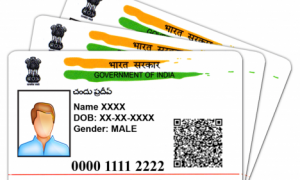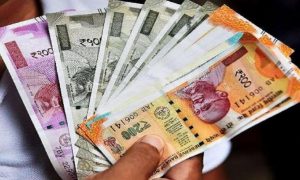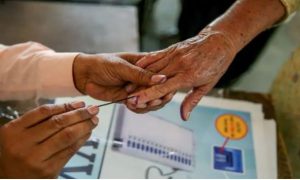“Did you know Udham Singhji was married to an Englishwoman for over a decade? When he went to London’s Caxton Hall to assassinate Michael O’Dwyer, the entry pass was in his wife’s name. An Indian would not have been allowed in, you see. He never told his wife about his true maksad (aim). It was only when he was jailed after the killing and she came to meet him that he told her everything. For him, his duty to India was above all bonds,” Karnail Singh Kamboj, 63, said over the phone.
When told that no record of this wife exists in history books, he was unfazed. “Yes, a lot of things about Shaheed Udham Singh never made it to history books. These stories were narrated to us by our buzurg (elderly), I belong to Udham Singh’s family.”
Freedom fighter Udham Singh’s parents and brother had died when he was a child. He left behind no children. According to Kamboj, his ancestors had the same gotra and khaandan (extended family) as Udham.
On August 8, Kamboj was in New Delhi to attend a seminar organised by the Department of Commerce of Delhi University and the Social Studies Foundation. The seminar, to mark 75 years of Indian Independence, focused on the role of the oppressed castes in the freedom struggle, and had invited the descendants of some such freedom fighters.
Among the attendants, apart from Kamboj, were Swati Kumar, the granddaughter of former defence minister Jagjivan Ram, Tulsi Ram, the fifth-generation descendant of Gangu Baba, who participated in the Revolt of 1857, and Meena Devi, granddaughter of Nandlal Kangra, who fought in the Azad Hind Fauj.
At the seminar, speakers argued that if one were to start naming freedom fighters one remembers, very few Dalit names would come up. While any mass movement in India has to have significant participation of the lower castes, history has been cavalier with them, not giving them the space they deserve.
Professor Yogesh Singh, vice-chancellor of Delhi University, gave the example of Jhalkari Bai, who dressed up like Rani Lakshmi Bai and rode out with a small troop to fight the British, giving the real Rani time to exit the Jhansi fort in the battle of 1857. “In immortalising Rani Laxmi Bai, some credit goes to Subhadra Kumari Chauhan, who wrote the poem ‘Khub ladi mardaani woh toh Jhansi waali rani thi (bravely fought the manly queen of Jhansi)’. Jhalkari Bai, and others from oppressed castes, have not found such champions,” Singh said.
Thus, not many would know of Tulsi Ram’s ancestor Gangu Baba, who fought alongside Nana Saheb Peshwa II in Kanpur in 1857. Tulsi Ram, who still lives near Kanpur, was hesitant to speak on stage and so Brijesh, an activist who brought him to Delhi, spoke for him.
“Gangu Baba was from the Valmiki community and was a trained wrestler. Impressed by him, Nana Saheb appointed him as a security guard. During the 1857 revolution, Gangu Baba killed 150 goras (whites),” Brijesh narrated. “In that day and age, the British declared a prize money of Rs 50,000 on him. He was eventually caught and hanged in Kanpur’s Chunniganj.”
Today, Tulsi Ram and his family live on the outskirts of Kanpur. He has retired as a municipal cleaning staff. His son Pawan Balmiki, 25, told The Indian Express they have never received government help. “On June 5 every year, Gangu Baba is honoured in Chunniganj. When we go there, we are given a lot of respect. That feels good. Other than that, we have received no help. Both my sisters are graduates but do not have jobs. My three brothers and I do whatever work we find,” Pawan said. What does he feel about his illustrious ancestor? “I have heard he was an expert wielder of the bhala (spear). That is pretty impressive.”
In contrast, Swati Kumar’s family is far more famous. Her freedom fighter grandfather Babu Jagjivan Ram had a long career in politics, and her mother, Meira Kumar, is a diplomat, politician and former Lok Sabha Speaker.
Speaking to The Indian Express, Swati said millions of Dalits participated in the freedom struggle, but not even 10 are well-known. “The fight of the Dalits is remarkable for more reasons than one. They were fighting for a society that had never accepted them as equals. They were fighting for a freedom where they would still be oppressed. And unlike my grandfather, these millions fought and died in obscurity.”
Swati said that in the 75th year of Independence, it was high time unsung heroes got their due recognition. “Among women too, we know the names of a handful. But so many women would weave khadi, sing songs of Independence, and keep the flame of the struggle lit. In my own family, when my grandfather went to jail, it was my grandma who kept morale and courage up. This kind of quiet, consistent bravery needs to be celebrated a lot more,” she said.
One of the co-convenors of the seminar was Dr Aditi Narayani Paswan, assistant professor at Maitreyi College. She said the need for the seminar was felt from her own experience of researching and teaching.
“Even today, Dalits have limited reach in academia, in the writing and shaping of history. As a student as well as a teacher, I have always struggled to find my community represented in my textbooks. In the case of freedom fighters, they find mention only in the oral history of Dalit residents of whichever area they belonged to. Oral history is by nature parochial and restricted. We felt these stories need to be lifted from their narrow confines,” Paswan said.
To trace the descendants, Paswan said they looked up whatever government records existed of these freedom fighters, and then sent local activists to their birthplaces. These activists spoke to people in the area, sifting facts and folk tales, till they zeroed in upon the surviving family members.
At the seminar, a coffee table book on the role of the ‘vanchit’ (deprived) in the freedom struggle was launched. Paswan said plans to bring out another such edition are in progress.
One of the reasons given for the little mention Dalits find in the freedom struggle is that many were sympathetic to the British rule, which offered them English education and more rights than the caste-ridden Hindu society. However, Dilip Mandal, author and columnist, said this is a narrow view.
“Not only Dalits, all communities at that time were engaging with the British at various levels. Revolt went hand-in-hand with negotiations and peace talks. Of course, the British passed laws beneficial to Dalits and allowed them education. But the impoverishment their policies caused impacted the lower castes the worst,” Mandal said.
Mandal said one reason Dalits did not make it to history books was because they did not rise to leadership positions in the freedom movement. “The party spearheading the freedom struggle, the Congress, was dominated by upper castes. No Dalit ever rose high in its echelons. After Independence, history was written by upper castes. Thus, we see a savior attitude towards the harijans, but we do not see acknowledgment of the harijan as an equal participant, as the critical ballast of the freedom struggle,” Mandal said.





































